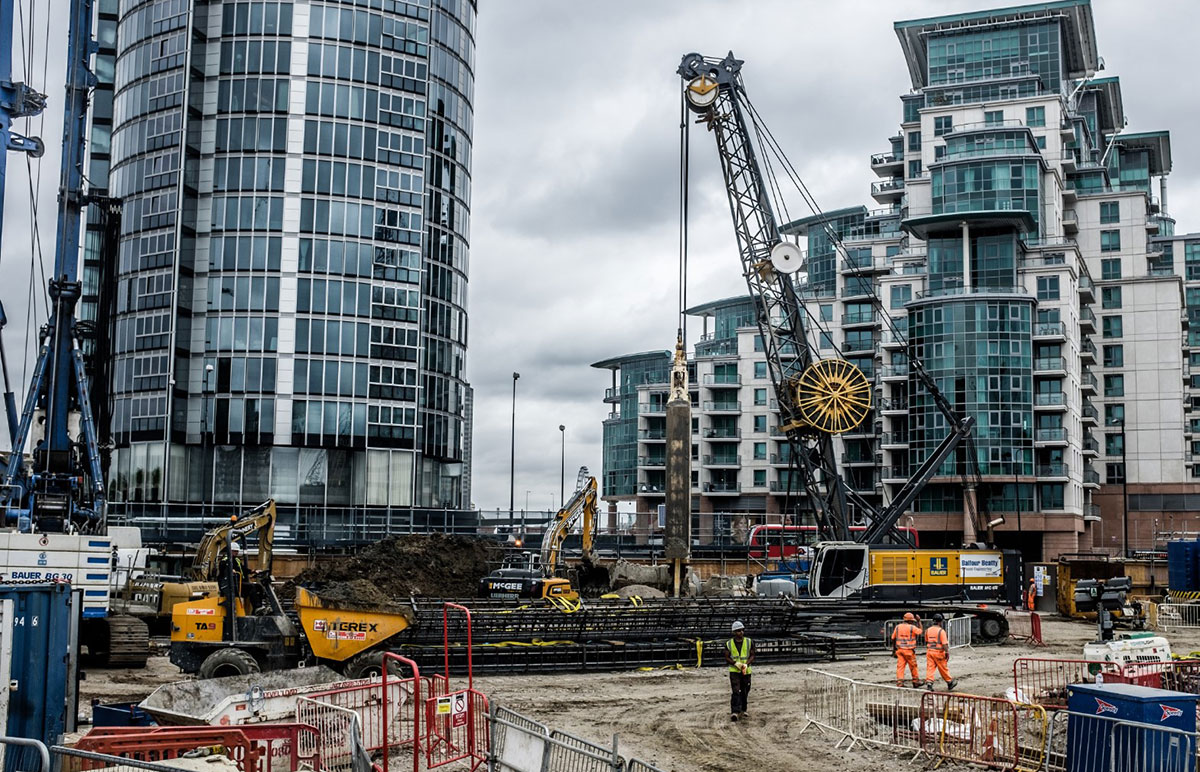Things about Geotheta
Things about Geotheta
Blog Article
More About Geotheta
Table of ContentsThe Buzz on GeothetaThe smart Trick of Geotheta That Nobody is Talking AboutSome Known Details About Geotheta What Does Geotheta Do?Unknown Facts About Geotheta

They perform site investigations, accumulate examples, execute research laboratory tests, and examine data to assess the viability of the ground for construction jobs - Consulting Engineer. Based on their searchings for, geotechnical engineers give suggestions for foundation style, incline security, preserving structures, and mitigation of geotechnical hazards. They team up with various other professionals, such as designers, architectural designers, and construction groups, to ensure that geotechnical factors to consider are incorporated right into the overall task design and application
By evaluating the actions and buildings of soil and rock, they can identify possible geotechnical hazards such as landslides, soil settlement, or slope instability. Their know-how helps protect against failures or mishaps that can endanger lives and residential property. Right here are some thorough tasks and responsibilities of a geotechnical engineer: Website Examination: Geotechnical engineers conduct site examinations to gather data on subsurface conditions.
They translate the information to comprehend the residential or commercial properties and habits of the soil and rock, including their toughness, leaks in the structure, compaction qualities, and groundwater conditions. Geotechnical Analysis and Style: Geotechnical engineers analyze the data collected during website investigations to examine the security and viability of the website for building and construction jobs. They carry out geotechnical computations and modeling to review aspects such as birthing capacity, settlement, slope security, lateral earth stress, and groundwater flow.
The 7-Minute Rule for Geotheta
Foundation Style: Geotechnical designers play a vital function in creating structures that can safely sustain the desired structure. They evaluate the soil conditions and lots demands to identify the appropriate structure kind, such as superficial structures (e.g., footings), deep foundations (e.g (https://justpaste.it/ec966)., stacks), or specialized techniques like dirt enhancement. They consider factors such as settlement limits, birthing capacity, and soil-structure interaction to establish optimal foundation layouts
They examine building strategies, display site activities, and conduct field assessments to confirm that the layout suggestions are followed. If unforeseen geotechnical issues arise, they evaluate the circumstance and supply suggestions for removal or modifications to the layout. Danger Assessment and Mitigation: Geotechnical engineers examine geotechnical risks and dangers connected with the job website, such as landslides, liquefaction, or soil disintegration.

Partnership and Communication: Geotechnical designers function closely with various other experts associated with a project, such as engineers, structural designers, and building groups. Reliable interaction and partnership are vital to integrate geotechnical factors to consider into the overall job style and building procedure. Geotechnical engineers provide technological knowledge, answer questions, and ensure that geotechnical demands are fulfilled.
The Only Guide to Geotheta
Below are some sorts of geotechnical engineers: Foundation Designer: Foundation engineers concentrate on making and analyzing foundations for frameworks. They evaluate the soil conditions, load demands, and site features to figure out one of the most ideal structure kind and layout, such as superficial structures, deep foundations, or specialized techniques like pile foundations.
They evaluate the variables affecting slope security, such as soil properties, groundwater problems, and incline geometry, and establish methods to avoid incline failings and mitigate dangers. Earthquake Engineer: Earthquake engineers focus on assessing and creating structures to endure seismic pressures. They examine the seismic danger of a website, assess soil liquefaction capacity, and establish seismic style standards to guarantee the safety and resilience of structures throughout quakes.
They perform field screening, gather examples, and evaluate the gathered data to characterize the dirt residential or commercial properties, geologic developments, and groundwater conditions at a website. Geotechnical Instrumentation Designer: Geotechnical instrumentation designers focus on monitoring and measuring the habits of soil, rock, and structures. They install and keep instrumentation systems that keep an eye on aspects such as dirt negotiation, groundwater degrees, slope motions, and structural variations to evaluate performance and give early warnings of possible concerns.
The Single Strategy To Use For Geotheta
They perform tests such as triaxial tests, debt consolidation examinations, direct shear tests, and permeability examinations to gather information for geotechnical evaluation and design. Geosynthetics Engineer: Geosynthetics link engineers specialize in the design and application of geosynthetic materials, such as geotextiles, geogrids, and geomembranes. They utilize these products to improve soil stability, reinforce slopes, provide drain options, and control disintegration.
They have a tendency to be investigatory individuals, which means they're intellectual, introspective, and curious. They wonder, systematic, logical, logical, and rational. Some of them are likewise social, indicating they're kind, generous, cooperative, person, caring, handy, compassionate, sensible, and friendly. Does this seem like you? Take our complimentary profession examination to locate out if geotechnical designer is among your top job matches.
In the office atmosphere, geotechnical engineers utilize specialized software application devices to do estimations, produce designs, and evaluate information. They prepare records, testimonial job specs, connect with clients and staff member, and coordinate task activities. The office setting gives a conducive setting for research, evaluation, and cooperation with various other professionals associated with the task.
6 Simple Techniques For Geotheta
They often see job websites to conduct site investigations, evaluate geotechnical problems, and collect data for evaluation. These brows through entail traveling to various places, sometimes in remote or challenging surfaces. Geotechnical engineers might perform dirt tasting, conduct examinations, and screen building activities to make sure that the geotechnical facets of the project are being applied correctly.
Geotechnical designers also operate in specialized geotechnical research laboratories. In these facilities, they carry out experiments, execute examinations on soil and rock examples, and examine the design residential properties of the products. Geotechnical lab engineers function extensively in these atmospheres, managing screening tools, running instruments, and tape-recording data. They collaborate with various other laboratory team to guarantee exact and dependable screening outcomes.
Report this page